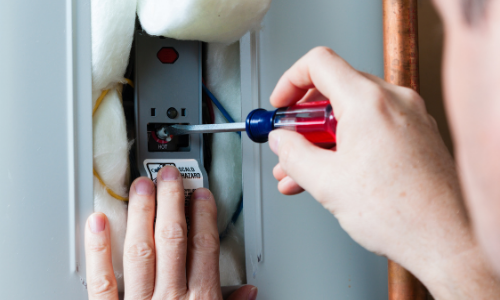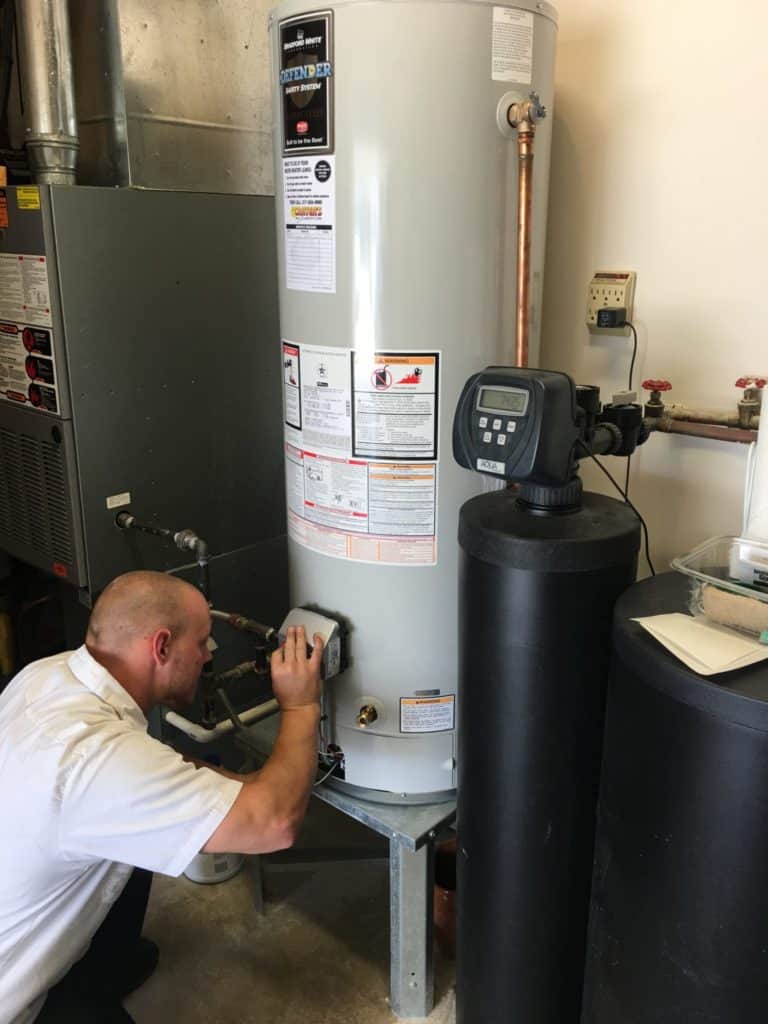Tackling the Frequently Encountered Water Heater Emergencies
Tackling the Frequently Encountered Water Heater Emergencies
Blog Article
Just how do you feel with regards to Is Your Water Heater Leaking??

A hot water heater is among the most important standard appliances that can be located in a home. With water heaters, you do not need to undergo the anxiety of heating water manually each time there is a demand to take a bath, do the laundry, or the meals. Nonetheless, there is always an opportunity that your hot water heater would break down just like most mechanical devices.
It is important to note any kind of little malfunction and tackle it promptly before points leave hand. Many times, your hot water heater begins to malfunction when there is a build-up of sediments as a result of continual use. As a safety measure, routine flushing of your hot water heater is suggested to prevent debris buildup and stop useful failure.
Common hot water heater emergency situations as well as exactly how to handle them
Insufficient warm water
Managing an inadequate supply of warm water can be aggravating. It may be that the hot water heater can't sustain the hot water need for your home. To take care of this trouble, you could try to change your heating system's temperature level dial and wait on a couple of mins. You can ask for the aid of an expert plumber if the issue continues. Conversely, you can update your hot water heater to one with a larger capacity.
Rising and fall water temperature level.
Your water heater might begin generating water of various temperature levels typically ice cool or hot hot. There may be a requirement to change either the thermostat or the home heating system of your water heating system.
Dripping water heater container.
A leaking tank could be an indicator of corrosion. It could create damage to the floor, wall as well as electrical devices around it. You could even be at risk of having your apartment or condo swamped. In this scenario, you should turn off your water heater, allow it to cool, and meticulously try to find the resource of the problem. Sometimes, all you need to do is to tighten a couple of screws or pipeline connections in cases of minor leaks. But if this does not function and also the leak continues, you could need to utilize the services of a service technician for a suitable replacement.
Tarnished or stinky water
When this happens, you need to know if the issue is from the water or the container resource. If there is no amusing smell when you run cold water, then you are particular that it is your water heating unit that is malfunctioning. The stinky water can be triggered by rust or the build-up of microorganisms or debris in the water heating unit tank.
Conclusion
Some house owners overlook little warning as well as minor faults in their hot water heater device. This just brings about additional damage and also a feasible total break down of your appliance. You must handle your hot water heater mistakes as soon as they come up to stay clear of more expenditures and unnecessary emergency troubles.
With water heaters, you don't need to go through the tension of heating water manually every time there is a need to take a bath, do the laundry, or the dishes. It may be that the water heater can not sustain the warm water need for your apartment. Your water heating unit could start producing water of various temperature levels usually ice cold or hot warm. If there is no funny smell when you run cool water, then you are particular that it is your water heating unit that is malfunctioning. The stinky water can be triggered by corrosion or the accumulation of bacteria or sediments in the water heating unit container.
Common Water Heater Issues and What You Should Do
What Type of Water Heater Do You Have?
Before we begin it’s first important that you identify the type of water heater you have on your property. There are two main types of water heaters out there: conventional and high efficiency.
Both of these types of products typically use either gas or electricity to heat power. There are also solar water heaters that use a thermal collector on the roof or yard to heat the water.
While these models are not as common, they can cut heating costs in half. In this article, we will focus on conventional and high efficiency.
How Do My Electric and Gas Water Heater Work?
Though they look similar, electric and gas water heaters work very differently. It’s important to know their basic function because often problems can be specific to the heating source.
In the electric model, a thermostat on the side of the machine detects the temperature of the water in the tank. When the temperature needs to rise electricity flows to a heating element suspended in the water.
Gas models also use a thermostat device — typically with a mercury sensor at the tip and an additional sensor called a thermocouple. The thermocouple detects whether the pilot light is on and controls the flow of gas.
When the thermostat drops below the appropriate level gas is released which becomes ignited by the pilot light. The flame heats the bottom of the water tank which causes hot water to rise and cold water to drop.
This natural circulation continues until the water reaches the desired temperature. Then, the thermostat triggers the gas control valve to shut off the flow of gas.
What Are the Most Common Issues and How Do You Fix Them?
https://happyhiller.com/blog/common-water-heater-issues-and-what-you-should-do/

We were brought to that report about Common Hot Water Heater Problems from an acquaintance on our other web blog. Sharing is nice. Who knows, you could be helping someone out. Thank you so much for taking the time to read it.
Don't settle; choose expert plumbers. Report this page